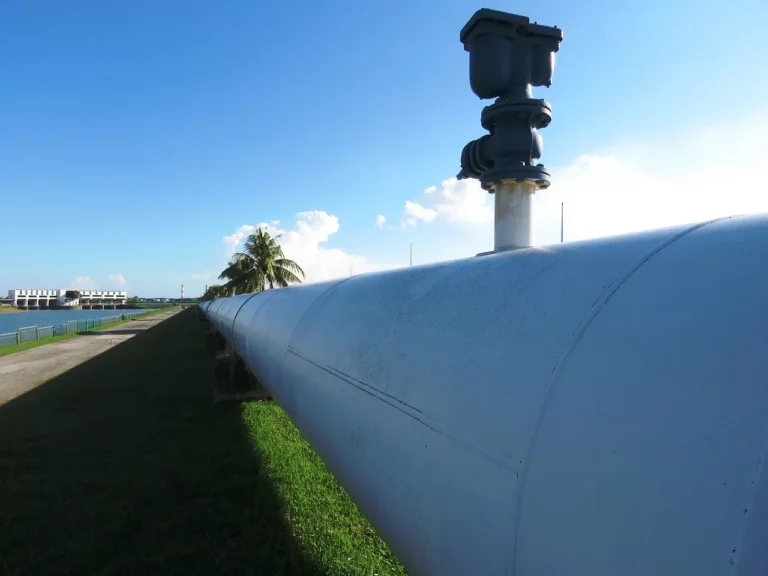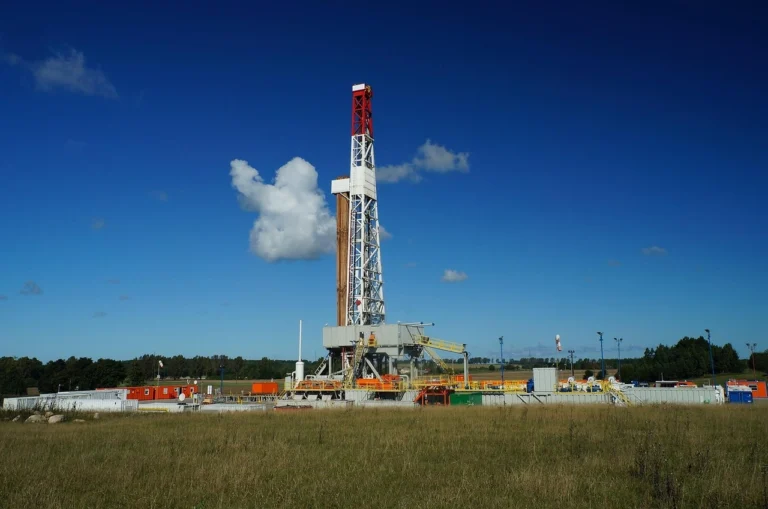
Europe’s Oil and Gas Industry Embraces AI to Enhance Efficiency Amid Rising Energy Security Concerns
Europe’s oil and gas sector is increasingly turning to artificial intelligence (AI) to enhance its operational efficiency and better position itself in a rapidly changing global energy landscape. The 2024 ISG Provider Lens™ Oil and Gas Industry Services and Solutions report, published by Information Services Group (ISG), a global leader in technology research and advisory, reveals how major energy companies in the region, including BP, Shell, and TotalEnergies, are leveraging AI to improve performance across various aspects of the value chain, from exploration and production to refining, predictive maintenance, and supply chain management.
This growing adoption of advanced technologies is particularly timely for Europe’s oil and gas industry, which is grappling with complex challenges due to the war in Ukraine and shifting geopolitical dynamics. As energy security takes center stage, there is a concerted focus on offshore production, particularly in the North Sea, which remains a critical region for exploration and production. Simultaneously, the European Union (EU) is committed to transitioning away from fossil fuels, in line with its net-zero emissions goals, making it imperative for the region to balance the immediate need for increased production with long-term sustainability efforts.
The Role of AI in the Transition
According to Julien Escribe, partner and managing director at ISG SEMEA, Europe’s upstream oil and gas sector is at a crucial crossroads. “The industry must increase production in the short term to combat supply challenges while also preparing for a lower-carbon future,” said Escribe. “Technology is playing an increasingly important role in this transition.”
With Europe’s oil and gas demand expected to decline by as much as 25% to 50% within the next five years, according to the report, energy providers are facing significant pressure to manage their operations more efficiently, reduce costs, and stay compliant with evolving regulations. At the same time, geopolitical events, such as Russia’s ongoing conflict with Ukraine, have disrupted supply chains and heightened energy security concerns, prompting the need for more advanced technologies that can help manage these challenges.
In response, the industry is increasingly adopting AI-driven solutions, such as generative AI (GenAI), machine learning (ML), and digital twin technologies, to improve existing enterprise asset management (EAM) processes. These technologies enable operators to optimize production, reduce operational downtime, and proactively address maintenance issues before they escalate, thus minimizing costs and improving efficiency.
Enhanced Operational Efficiency through AI
AI is playing a transformative role in optimizing operations across the value chain. From exploration and production to refining and supply chain management, AI applications are helping companies reduce costs and improve efficiency. One of the key areas where AI is making an impact is predictive maintenance. By leveraging machine learning algorithms, operators can identify potential equipment failures before they occur, reducing the risk of unplanned downtime and extending the life of critical assets.
For example, AI-powered digital twins allow companies to create virtual replicas of their physical assets, enabling real-time monitoring and data analysis. This helps operators make more informed decisions and optimize asset performance. Furthermore, AI-driven systems can provide better insights into resource exploration, Industry improving the accuracy of drilling operations and boosting recovery rates.
In refining, AI is used to optimize processes, monitor product quality, and predict demand fluctuations. By analyzing historical data and market trends, AI can help companies better forecast the need for specific products, such as refined fuels, and adjust production accordingly.
The Energy Transition and Decarbonization
As Europe moves toward decarbonization, the oil and gas industry faces mounting pressure to reduce its carbon footprint while maintaining productivity. The EU’s ambitious climate goals, which include achieving net-zero emissions by 2050, have put the spotlight on the oil and gas industry to adopt cleaner technologies and practices. This shift is particularly challenging for oil and gas producers, given their reliance on fossil fuels for energy production.

However, AI is helping companies meet these challenges. In addition to improving operational efficiency, AI can also support the transition to cleaner energy by optimizing energy use and reducing emissions. For instance, AI-powered solutions can be used to monitor and manage emissions from production facilities, identify inefficiencies in energy consumption, and optimize the use of renewable energy sources in operations.
Moreover, AI can assist in the development of new, low-carbon technologies that can help the industry meet its environmental goals. By analyzing large datasets and identifying patterns, AI can support the development of more efficient drilling techniques, carbon capture and storage technologies, and cleaner refining processes.
Supply Chain Optimization
The oil and gas sector’s reliance on global supply chains has made it particularly vulnerable to disruptions, particularly in light of the ongoing geopolitical tensions in Europe. Russia’s invasion of Ukraine has underscored the need for greater resilience in energy supply chains, prompting oil and gas companies to adopt advanced technologies to improve their supply chain management.
AI plays a key role in enhancing supply chain operations by improving visibility, forecasting demand, and optimizing inventory management. With the help of AI, companies can better predict disruptions and plan alternative supply routes, ensuring that energy production is not disrupted even during periods of geopolitical instability.
AI-driven supply chain management also allows for better coordination between different stakeholders in the value chain, ensuring that products are delivered on time and at the right cost. Additionally, AI can improve logistics by automating routine tasks, such as scheduling and tracking shipments, thereby reducing operational costs.
Cybersecurity in the Oil and Gas Industry
As oil and gas companies increasingly embrace digital technologies, they are also facing new cybersecurity threats. The rise of cloud-based systems, data storage, and IoT-connected devices has expanded the attack surface for cybercriminals, making it more important than ever for companies to bolster their cybersecurity defenses.
The report highlights how European oil and gas companies are responding to these threats by implementing advanced cybersecurity measures, including AI-driven threat detection and response systems. By using AI to monitor network traffic and analyze patterns, companies can identify potential security breaches in real time and take immediate action to mitigate the risk.
The European Commission’s Cyber Resilience Act, which mandates stricter cybersecurity requirements for critical infrastructure, has further emphasized the need for robust cybersecurity measures in the oil and gas sector. AI is helping companies comply with these new regulations by automating threat detection and ensuring that sensitive data is protected from cyberattacks.
Market Trends and Key Players
The ISG report also identifies key trends in the oil and gas industry, including the increasing role of AI in driving innovation and improving efficiency. The report evaluates the capabilities of 33 providers across four quadrants: Enterprise Asset Management (EAM), Next-Gen IT/OT Services, Data Management and Cloud Computing, and Energy Transition Services.
Among the leading companies in the sector, Accenture, Capgemini, Deloitte, IBM Consulting, Infosys, TCS, and Wipro have been named as leaders in four quadrants each. These companies are recognized for their ability to deliver comprehensive AI-driven solutions that address the evolving needs of the oil and gas industry.
Other notable players, such as Cognizant, EY, Hitachi Digital Services, and LTIMindtree, have been named leaders in two quadrants each, while LTTS and PwC are recognized as leaders in one quadrant each.
Capgemini has also been named the global ISG CX Star Performer for 2024, earning the highest customer satisfaction scores in ISG’s Voice of the Customer survey. This recognition underscores Capgemini’s strong commitment to delivering innovative solutions and exceptional customer service to the oil and gas industry.







